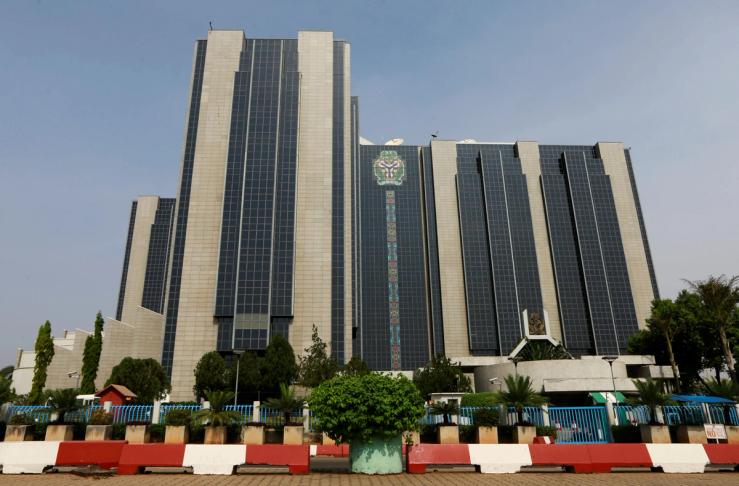The News
LAGOS — Nigerian banks are racing to meet new capital requirements imposed by the central bank which could trigger the biggest mergers and acquisitions shakeup in the sector in 20 years.
The Central Bank of Nigeria (CBN) ordered new capital requirements for different tiers of banks last month in a move aimed at protecting Africa’s largest economy against global shocks. They range from 10 billion naira ($7.6 million) for smaller banks, to 500 billion naira ($380 million) for those operating in other countries.
An April 30 deadline is looming for banks to announce their plans for fundraising, which the CBN said must be completed by the end of March 2026.
Access Bank and First Bank, two of Nigeria’s largest lenders by assets and customer base, have said they will raise 365 billion naira and 300 billion naira respectively, including by issuing shares to existing shareholders and through public offers in capital markets. Access also wants to raise $1.5 billion to continue an Africa expansion that has seen it acquire or invest in banks in Kenya, Angola, Uganda, Botswana, and South Africa since 2019.
Analysts expect a number of mergers in the coming months — albeit fewer than was seen following a similar change two decades ago. Accounting firm EY, in a note last month, said 17 of Nigeria’s 24 banks are unlikely to meet the new capital requirements.
In this article:
Know More
Nigerian banks have mostly remained stable in the last decade, even as the economy struggled through two recessions, a pandemic and a sharply devalued currency. While tensions in parts of West Africa following military coups have been an added concern for African banks with foreign operations, exposure to geopolitical risks has been limited in most cases, according to ratings firm Fitch.
Nigeria was the only major African economy where banks had a positive return on equity between 2016 and 2022, according to McKinsey. But Yemi Cardoso, a former Citigroup banker who became CBN governor last year, is moving the sector’s attention from merely focusing on stability to more active participation in the economy. He first informed banks of a prospective recapitalisation last November at an industry dinner.
Cardoso argues that Nigerian banks need more money if President Bola Tinubu is to achieve his ambition of a trillion-dollar economy — it’s currently under $400 billion. “Bigger banks with larger capital bases and capacity can underwrite larger levels of credit which is critical to lubricate and catalyze the growth of the economy,” the bank said. Credit ratings agency Moody’s scored the recapitalisation plan as “a credit positive.”
Alexander’s view
This review could mark the start of a new era for Nigeria’s banking sector, coinciding with the increased role of technology and the internet in expanding access to financial services across the country.
Nigeria’s last capital review was in 2004, when it increased the minimum requirement from 2 to 25 billion naira ($188 million at the time). It led to thousands of job losses triggered by a wave of mergers and acquisitions that shrank the number of banks from 89 to 25. But the reform proved to be a net positive for economic stability, coming shortly after the end of nearly two decades of military dictatorships and in the midst of debt relief renegotiations with the Paris Club of lenders.
Nigeria’s problem today is less about structural distress in banks and more about lethargy driven by macroeconomic headwinds. Faced with a weak naira, banks have held back on commercial lending, preferring to invest in safe fixed income securities or trade in foreign currencies, analysts say.
Despite increasing its loans to the private sector every year since 2014, Nigerian banks largely avoid lending to small and medium businesses which constitute the majority of the economy. That has left a $32.2 billion financing gap in Nigeria’s small business sector, the International Finance Corporation has warned.
Nigerian banks have long trailed counterparts in Egypt and South Africa on rankings of African banks. Raising the capital base could be a step in closing that competition gap, ratings firm S&P Global said.
Room for Disagreement
Two criticisms of the new policy are that heavily capitalized banks may not necessarily drive economic growth, and banks may fail to increase lending to small businesses if macro conditions continue to weaken the local currency. Premium Times, a national daily in Nigeria, argued that the capital reform in 2004 only served to “inflate bubbles” in the banking sector, without helping Nigerian banks to catch up with South Africa’s leading banks.
Notable
- Nigeria’s last capital reform created an oligopoly of banks wielding too much market power over consumers, a 2018 analysis by Lagos-based consultancy Stears said.


